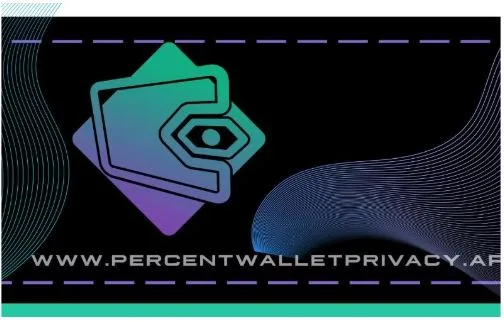Online Doesn’t Mean Impersonal: How Trusted Providers Are Changing Education
From Clicks to Connection—How Online Learning Earned a Bad Rep
The rise of online education came with both fanfare and skepticism. At first, it was seen as revolutionary—flexible, affordable, and accessible. But early experiences left many students cold. Static videos, absent instructors, and ghost-town discussion boards didn’t exactly inspire commitment or community.
For a long time, the phrase “online learning” conjured images of do-it-yourself education with minimal support. The assumption? You’re on your own. But that narrative is rapidly changing—thanks to the emergence of the trusted online learning provider.
The Key Shift—From Content to Experience
The biggest transformation in online education isn’t more content—it’s more care. Trusted online learning providers aren’t just pushing out recorded lectures. They’re reengineering the learning experience around human behavior, engagement, and support.
They recognize that students drop out not because they’re lazy, but because they feel disconnected. So now, courses are built to be immersive, with:
– Regular live check-ins with instructors
– Interactive group projects
– Real-time Q&A and mentor support
– Personalized feedback on assignments
When designed correctly, the virtual classroom can feel more dynamic and attentive than a traditional lecture hall.
Rebuilding Trust with Structure, Not Just Style
While flashy dashboards and mobile-friendly design look impressive, what makes an online platform trusted is how it handles accountability and outcomes. The top providers aren’t just tossing out certificates—they’re aligning courses with real-world results.
That includes:
– Employer-verified skill tracks
– Career placement support
– Transparent progress tracking
– Peer reviews and community accountability
This shift is vital. When students feel like they’re part of a journey—and not just clicking through slides—they engage more deeply. And when the provider demonstrates a genuine stake in outcomes, trust follows.
More Data, Less Guesswork—Why Learning Is Smarter Now
Another reason trusted online learning providers are changing education? They’re harnessing data not to replace instructors, but to empower them.
Using real-time analytics, educators can track who’s struggling, who’s excelling, and where students drop off. They intervene earlier, offering support before someone silently fails. Students, too, benefit—being able to view their own learning metrics, set goals, and receive nudges that feel tailored, not spammy.
Instead of one-size-fits-all modules, today’s learning platforms adapt in real time. That’s not just smart—it’s deeply personal.
Breaking the Myth That Online Can’t Build Community
One of the most outdated beliefs about online education is that it’s isolating. While that was true a decade ago, it’s being turned on its head by platforms that prioritize community as much as curriculum.
A trusted online learning provider today will offer:
– Student-led forums and study pods
– Slack or Discord groups for quick peer support
– Peer-reviewed assignments
– Instructor-led live workshops and office hours
In some cases, students form longer-lasting relationships through online cohorts than they would in passing interactions on a campus.
One student in a recent UX design course put it simply: “I didn’t feel like I was learning alone—I felt like I was on a team.”
Accessibility Isn’t Just About Internet Access
Trusted providers understand that being online isn’t the same as being included. Accessibility today is about:
– Offering lessons in multiple formats (video, audio, text)
– Captioning and screen-reader compatibility
– Self-paced options for those with unpredictable schedules
– Translation or multi-language support
More importantly, it’s about cultural and emotional accessibility. Can a single mom in Detroit access the same level of coaching, clarity, and encouragement as a college student in LA? The best providers are saying “yes”—and proving it.
The Power of Instructor Presence in Digital Spaces
One of the most underestimated game-changers in online education is instructor presence. Not automation. Not AI. Just human engagement.
In courses led by trusted online learning providers, instructors aren’t figureheads—they’re guides. They show up weekly. They leave voice notes. They challenge assumptions. They celebrate wins.
This kind of interaction turns an impersonal course into something transformational. Students don’t just learn—they feel seen. And in education, that emotional engagement is everything.
Credentials Are Changing—And Trusted Providers Are Leading the Charge
College degrees are no longer the only ticket to career opportunities. Employers now consider micro-credentials, bootcamps, and verified certificates—if they come from trusted sources.
That’s where the reputation of the provider becomes critical. A certificate from a no-name platform might not carry weight. But one from a trusted online learning provider—especially one that partners with industry leaders—can open doors.
Platforms that partner with Google, Meta, IBM, or top universities add another layer of trust. It signals to employers that what was learned online is not only rigorous, but industry-backed.
When Feedback Isn’t Optional, It Becomes Impactful
In some traditional classrooms, feedback is limited to a grade at the end of the semester. Online education flips this. Trusted providers know that real-time, contextual feedback is what makes learning stick.
Whether it’s AI-enhanced feedback on code, peer reviews on writing, or personalized coaching after a video presentation—students don’t have to guess where they stand. They know, they improve, they repeat.
And because feedback loops are built in, not tacked on, the experience feels integrated—not forced.
Lifelong Learning Isn’t a Slogan—It’s a Strategy
Perhaps one of the most important roles a trusted online learning provider plays is preparing students for continuous growth.
Education today isn’t a finish line. It’s a revolving door. Technology changes. Industries shift. Skills expire.
The best platforms offer pathways, not just standalone courses. They help students move from beginner to expert, then re-upskill months later when a new tool hits the market.
And they do so while supporting alumni, offering discounts, or launching membership models that reward loyalty and encourage continuous learning.
When people question whether online education can truly connect, support, and transform—these providers are answering not with promises, but proof. Instructors who know your name. Classmates who become collaborators. Systems that adapt to your pace and your life.
The future of education isn’t less personal. It’s more human than ever—it’s just finally being delivered at scale.






